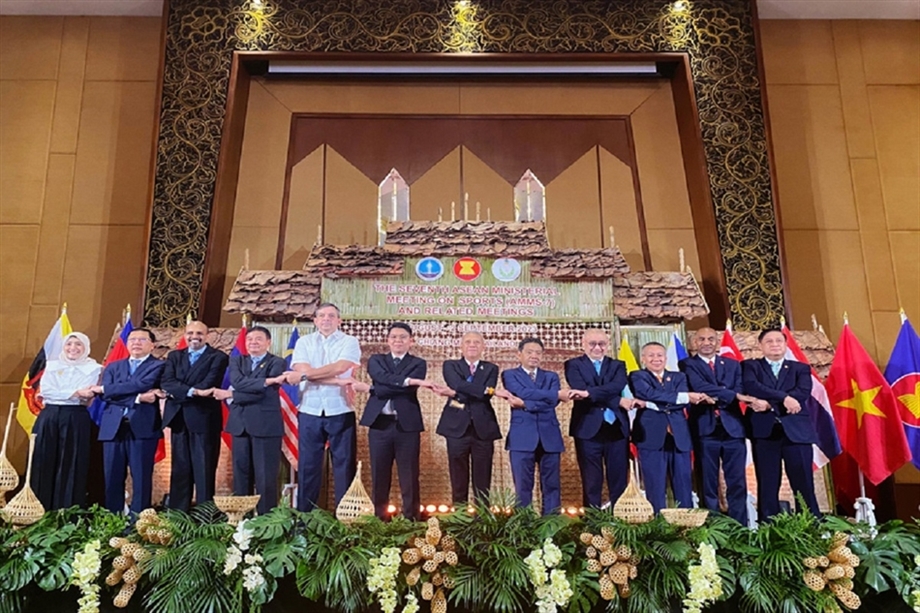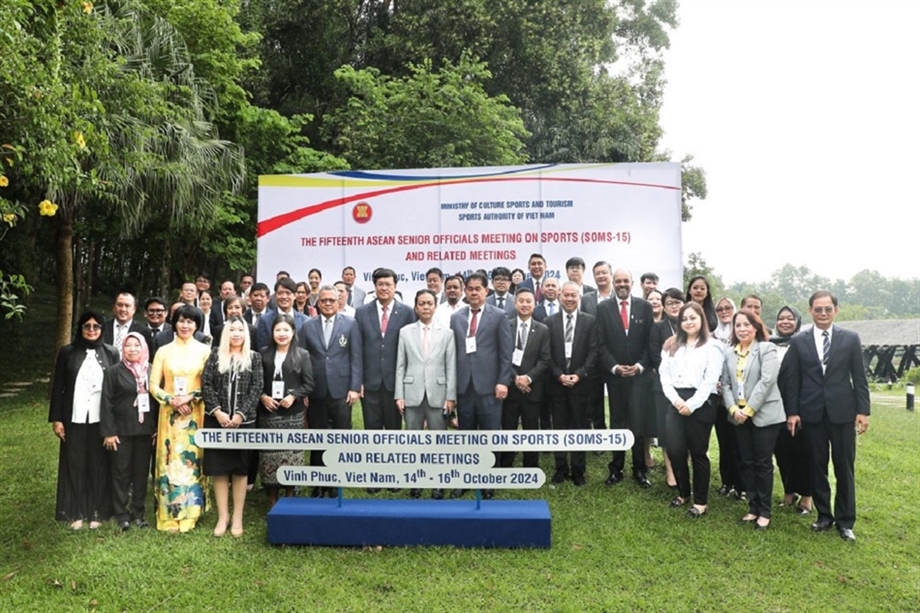A Growing Regional Platform
Since its first edition in 2011 in Indonesia, the AMMS has developed into a key high-level forum held every two years. Over the past 14 years, it has facilitated cooperation, policy exchange, and joint initiatives in sports among ASEAN member states.
This year, Vietnam assumes the rotating chairmanship, hosting AMMS-8 alongside the SOMS 16, 5th AMMS+Japan and the 2nd AMMS+China meetings. The week-long agenda will combine policy discussions with initiatives to deepen regional friendship, understanding, and collaboration.
With an eight-day program in Hanoi (October 11–18, 2025), AMMS-8 and its related meetings will not only serve as a forum for policy discussions but also as a gathering of friendship, mutual understanding, and cooperation within the ASEAN Community.
The meetings will feature key discussions on the content of the ASEAN Action Program on Sports, focusing on the development of professional sports, sports science, sports economics, gender equality in sports, preservation and promotion of traditional sports, establishment of the ASEAN High-Performance Sports Center, sports and health, and sports toward the Millenium Development Goals; building development directions and promoting ASEAN cooperation in the field of sports; and promoting sports and physical education cooperation between ASEAN member states and dialog partners China, Japan, South Korea, and international organizations.

The meeting is expected to adopt three Joint Declarations: the AMMS-8 Joint Declaration, the AMMS+Japan 5 Joint Declaration, and the AMMS+China 2 Joint Declaration. In addition, reports and documents from SOMS-15 and SOMS-16, along with the post-2025 cooperation plan, will be reviewed and approved.
One of the highlights of AMMS-8 will be the expansion of ASEAN sports cooperation with international partners outside the region. Vietnam and other ASEAN member states will discuss and approve specific cooperation plans, including: The ASEAN+Japan Sports Cooperation Plan, focusing on women and sports, physical education, sports for persons with disabilities, and sustainable development through football; The ASEAN+China Sports Cooperation Plan, covering public health, ASEAN sports infrastructure development, and traditional sports.
ASEAN will also foster cooperation with other partners such as South Korea, FIFA, the World Anti-Doping Agency (WADA), and the Southeast Asia Regional Anti-Doping Organization (SEARADO).
As host country, Vietnam has made thorough preparations to welcome around 200 delegates to the meeting. The meetings expected to be attended by international delegates including: Ministers/Deputy Ministers of Sports or heads of sports agencies from ASEAN member states and Timor Leste (an ASEAN observer country), senior ASEAN officials on sports, and sports representatives from ASEAN countries and Timor Leste; the ASEAN Secretariat; the Ministry leadership and senior officials responsible for sports from Japan and China; and representatives of international organizations and relevant ASEAN dialog partners.

Hosting AMMS-8 is not only Vietnam’s responsibility within the ASEAN sports cooperation mechanism but also an important opportunity to affirm its international role and reputation; to promote the image of the country, people, and sports of Vietnam to regional partners; and to strengthen friendship and mutual understanding within the ASEAN Community. It is also a chance for Vietnam to effectively implement the Party and State’s major foreign policy directions on multilateral diplomacy, in line with Politburo Conclusion No. 59-KL/TW, Secretariat Directive No. 25-CT/TW, and Prime Minister Decision No. 161/QD-TTg.
The meetings provides Vietnam with greater opportunities to access management experience, development models, and international resources. Areas such as sports science, physical education, sports for persons with disabilities, and school sports will be advanced through international cooperation, thereby enhancing the overall capacity of Vietnamese sports.
Particularly, the initiative to establish the ASEAN High-Performance Sports Center promises opportunities for Vietnamese athletes and coaches to train and exchange in a regional environment, raising professional quality and international integration capacity.
After AMMS-8, Vietnam is expected to continue playing a leading and coordinating role in regional sports cooperation initiatives. Its credibility and experience in hosting high-level regional events will pave the way for Vietnam to confidently bid for larger international tournaments and conferences in the future. More importantly, the success of this meeting will reinforce Vietnam’s image as a proactive, responsible, and dynamic member of ASEAN cooperation, laying the foundation for sports to become a channel of people-to-people diplomacy, fostering regional solidarity and international integration.
Nguyễn Khang